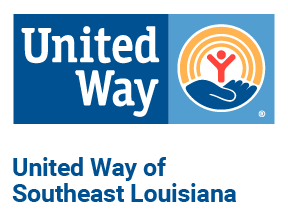Despite bigger paychecks, struggling households in Southeast Louisiana continue to increase
New ALICE update shows wage growth was no match for inflation after a decade of falling behind
May 22, 2024
NEW ORLEANS – Though wages for the lowest-paid jobs have risen across the country at the fastest rate in four decades, the number of households living paycheck to paycheck in Southeast Louisiana grew by nearly 9,000 from 2021 to 2022. As a result, a total of 260,635 households or 49% were unable to afford household basics, according to a new update from United Way of Southeast Louisiana (UWSELA) and its research partner United For ALICE.
For Jefferson, Orleans, Plaquemines, St. Bernard, St. Tammany, Tangipahoa and Washington parishes, that calculation includes the 90,290 households in poverty as well as another 170,345 defined as ALICE (Asset Limited, Income Constrained, Employed), earning above the Federal Poverty Level but less than what’s needed to survive in the current economy. ALICE workers include child care providers, home health aides and cashiers — those working low-wage jobs with little or no savings and one emergency from poverty.
ALICE in the Crosscurrents: An Update on Financial Hardship in Louisiana shows that while wages were increasing, so too were costs. For a family of four with an infant and a preschooler, the basic costs to live and work in Southeast Louisiana, excluding tax credits, rose from $70,716 in 2021 to $83,880 a year later. Compounding the issue in 2022 was the loss of up to $15,000 in federal child tax credits and stimulus payments that this family had access to in 2021.
The findings in 2022 are consistent with a more than decade-long trend: Since the end of the Great Recession, despite some ups and downs, the number of ALICE households in Southeast Louisiana has been steadily growing. From 2010 to 2022, the total number of households rose by 12%, households in poverty remained flat, and ALICE households grew by 10%, or 32,895 more households.
“The data is showing persistent and widespread financial hardship — a red flag that the current system isn’t working for ALICE,” said Stephanie Hoopes, Ph.D., United For ALICE National Director. “Current policy has not been enough to break down the barriers that trap ALICE households in financial hardship, from lack of access to housing and child care that’s affordable, to inadequate community supports such as broadband internet.”
Additional insights include:
-
From 2010 to 2022, people aged 65 and over made up the fastest-growing age group in Southeast Louisiana and the group with the largest increase (49%) in the number of households struggling to make ends meet.
-
Racial disparities persisted in the rates of financial hardship; 67% of Black and 49% of Hispanic households in Southeast Louisiana were either in poverty or ALICE in 2022, compared to 40% of white households.
-
Disparities also persisted across Southeast Louisiana households with children; 54% of single male-headed and a staggering 77% of single female-headed families with children were either in poverty or ALICE in 2022, compared to 20% of married families with children.
“United Way has proven programs and partners working to close gaps and stabilize ALICE households, like our Prosperity Centers, early care and education investments, and programmatic grants,” added Williamson. “But, together with our elected officials and business leaders, we can ensure Louisiana doesn’t continue to fall farther behind by supporting urgent policy decisions necessary for ALICE Households to move from surviving to thriving.”
To read the update and access interactive dashboards with data on financial hardship at the state, parish and local levels, visit UnitedWaySELA.org/ALICE.
For more information on UWSELA's services, mission and the impact of the ALICE Report, join the organization's leadership and community partners at the 2024 Annual Meeting and Live United Awards on Friday, June 7 from 8:30 - 10 a.m. at the Hilton New Orleans Riverside. Tickets are available on the website here.
###
About United Way of Southeast Louisiana
For nearly 100 years, United Way of Southeast Louisiana (UWSELA) has been a leader and trusted partner in improving lives and making a lasting difference. We fight to eradicate poverty by preparing people for quality jobs, growing incomes, and affording better health and education opportunities throughout Jefferson, Orleans, Plaquemines, St. Bernard, St. Tammany, Tangipahoa, and Washington parishes. We have a bold vision of equitable communities where all individuals are healthy, educated, and financially stable – and we have a plan. United Way of Southeast Louisiana’s Blueprint for Prosperity guides all strategic investments in programs, initiatives, collaborations, volunteerism, and advocacy aimed at tackling poverty. For more information, please visit UnitedWaySELA.org. Find us on social: @UnitedWaySELA.
About United For ALICE
United For ALICE is a U.S. research organization driving innovation, research and action to improve life across the country for ALICE (Asset Limited, Income Constrained, Employed) and for all. Through the development of the ALICE measurements, a comprehensive, unbiased picture of financial hardship has emerged. Harnessing this data and research on the mismatch between low-paying jobs and the cost of survival, ALICE partners convene, advocate and collaborate on solutions that promote financial stability at local, state and national levels. This grassroots ALICE movement, led by United Way of Northern New Jersey, has spread to 31 states and includes United Ways, corporations, nonprofits and foundations in Arkansas, Colorado, Connecticut, Delaware, Florida, Georgia, Hawai‘i, Idaho, Illinois, Indiana, Iowa, Kansas, Louisiana, Maine, Maryland, Michigan, Minnesota, Mississippi, New Jersey, New York, North Carolina, Ohio, Oregon, Pennsylvania, South Carolina, Tennessee, Texas, Virginia, Washington, Washington, D.C., West Virginia and Wisconsin; we are United For ALICE. For more information, visit: UnitedForALICE.org.
